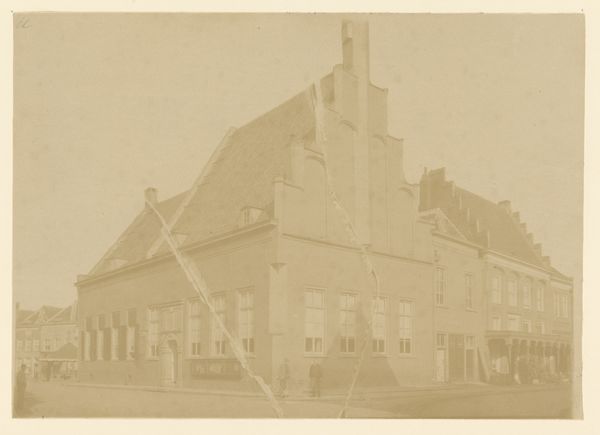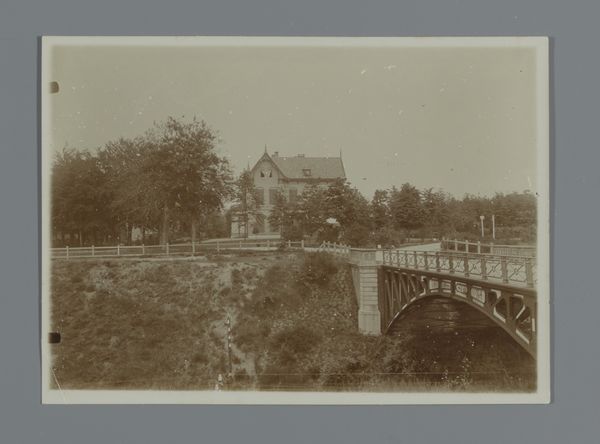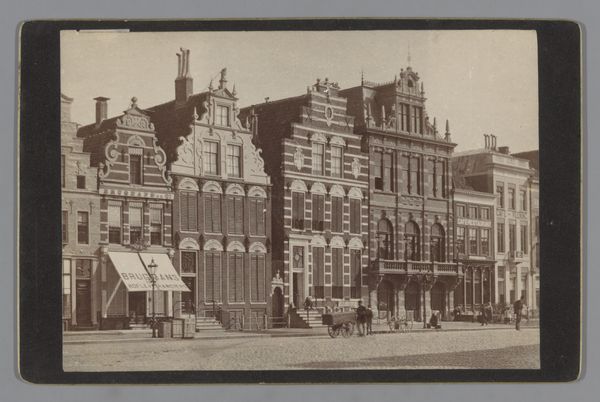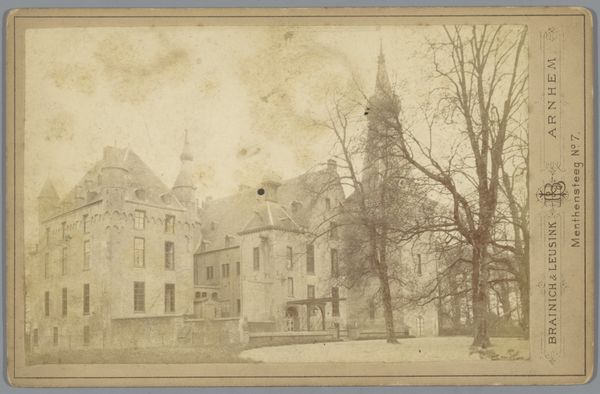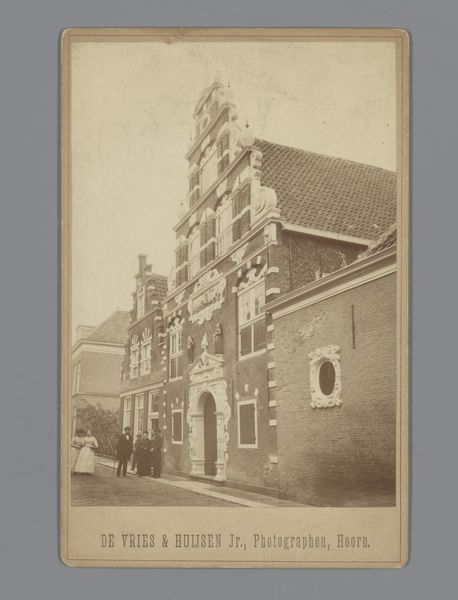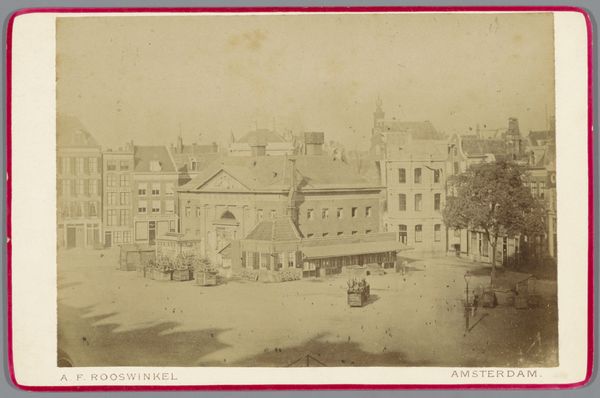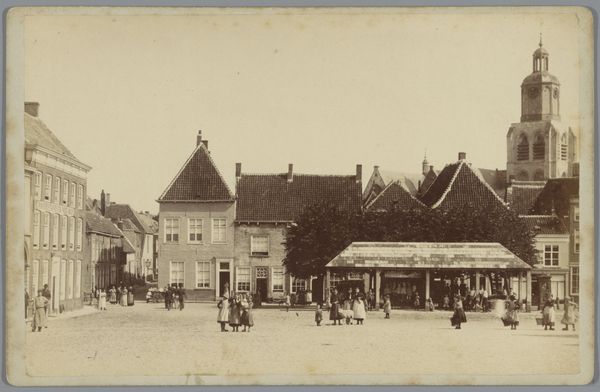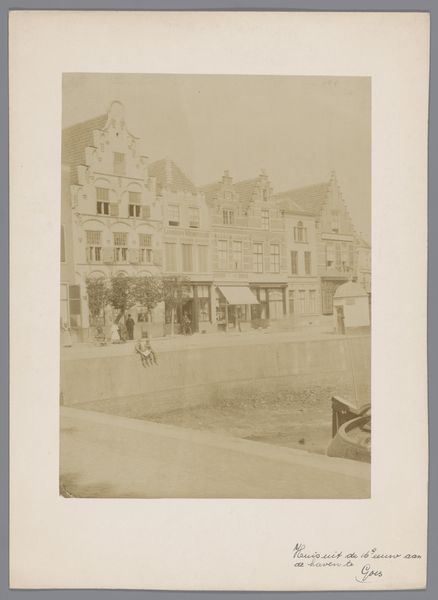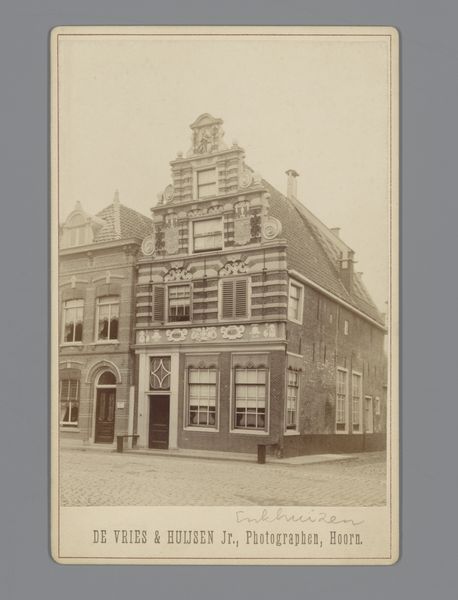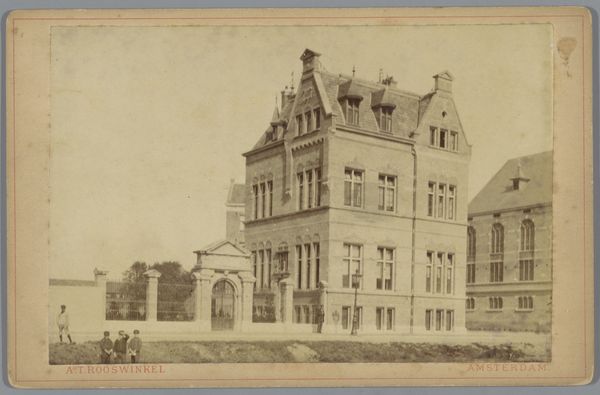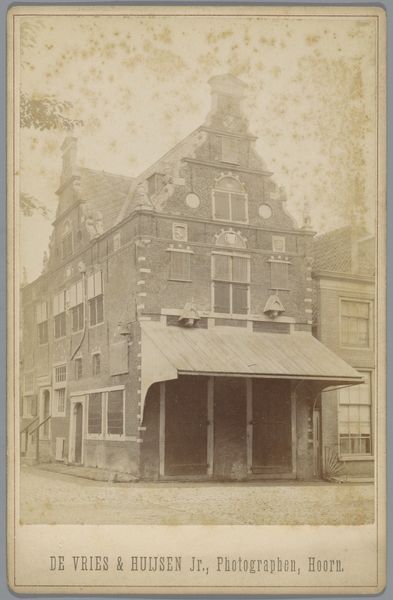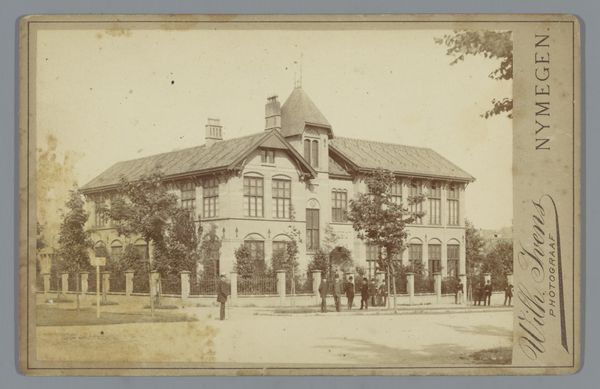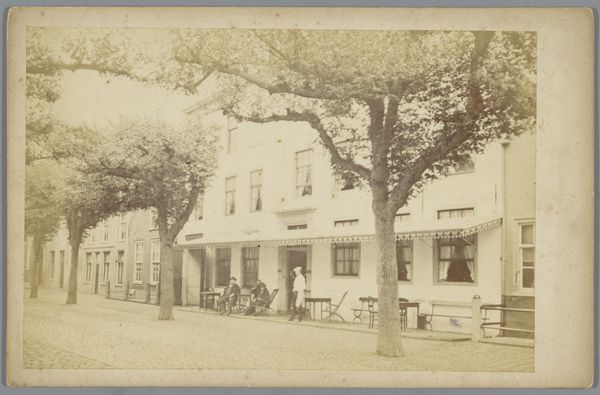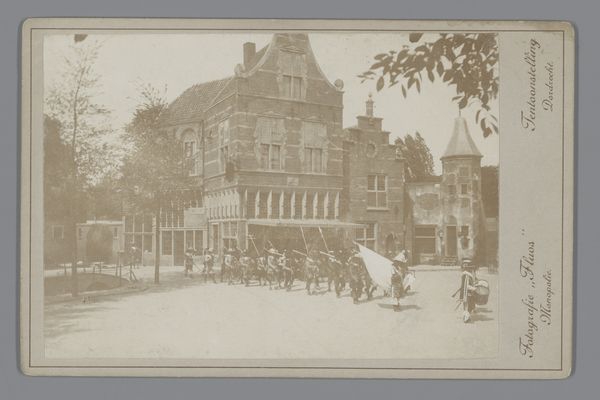
photography
#
16_19th-century
#
photography
#
cityscape
#
realism
Dimensions: height 60 mm, width 93 mm, height 62 mm, width 100 mm
Copyright: Rijks Museum: Open Domain
Editor: This photograph, “Gezicht op de Waag te Leeuwarden,” by Pieter Oosterhuis, likely taken sometime between 1860 and 1885, captures a marketplace scene. It's beautiful, but the tones are muted. What’s your take on this? Curator: I’m immediately drawn to the process and materiality. Consider the labor involved in creating a photographic print at this time. This wasn't a simple snapshot. Each image required careful preparation of the light-sensitive materials, precise exposure, and meticulous development. We must ask, who owned these technologies, who operated them, and who benefitted? Editor: That's interesting. I was focusing more on the scene itself, the people gathered at the marketplace. Curator: The people are vital. Who are they? The Waag, or weigh house, served as a center for trade. Oosterhuis documented the social context, capturing the economic activities and daily life of Leeuwarden. Editor: So, it's not just about the beautiful architecture. It’s about the lives and labor intertwined with the space? Curator: Precisely! The photograph exists as a commodity itself. Its distribution through photograph albums and other markets represents evolving consumption practices, especially by those classes with time and capital. Did such technology truly democratize image making, or simply extend privilege further? What does mass production mean in art, and to whom is mass production available? Editor: I hadn’t thought about that aspect. The creation and the circulation… I appreciate your focus on the historical and societal processes involved in its creation and dissemination. Curator: Seeing the work of art as just a document is restrictive; as simply beauty, inadequate. Let’s see where it truly lived in its time, the complicated nexus of how and why it came to be.
Comments
No comments
Be the first to comment and join the conversation on the ultimate creative platform.
